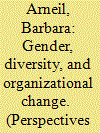|
|
|
Sort Order |
|
|
|
Items / Page
|
|
|
|
|
|
|
| Srl | Item |
| 1 |
ID:
096278


|
|
|
|
|
| Publication |
2010.
|
| Summary/Abstract |
After growing for decades, the Boy Scouts and Girl Scouts both experienced a dramatic drop in membership during the 1970s. Since then their membership patterns have diverged as the Boy Scouts of America (BSA) continues to decline and the Girl Scouts of the USA (GSUSA) has reached near record numbers. These patterns raise two questions: Why the decline? And why the divergence? On the cause of decline, I argue that a younger civil rights generation, informed by a new set of post-materialist values, did not join traditional organizations like the BSA and GSUSA because their values were deemed to be outdated. The challenge for traditional organizations therefore was how to respond. Using path dependency theory, I argue that BSA and GSUSA-shaped by their own unique origins and identities-responded very differently to the critical juncture of the civil rights generation, which in turn explains the subsequent divergence in membership patterns from the 1980s onward. While the BSA rejects such changes in order to defend traditional values, the GSUSA, which established a commitment to challenging gender norms from its birth, embraces the new values and adapts virtually every aspect of its organizational identity to this new generation. As young people see themselves reflected back in the values endorsed by the GSUSA, its membership resurges, while the BSA continues to decline. I conclude by drawing out larger theoretical lessons on the meaning of change in American civil society in light of an increasingly diverse population.
|
|
|
|
|
|
|
|
|
|
|
|
|
|
|
|
| 2 |
ID:
181553


|
|
|
|
|
| Summary/Abstract |
Using two recently published folios by Jeremy Bentham, I draw out a fundamental but little-analyzed connection between pauperism and both domestic and settler colonialism in opposition to imperialism in his thought. The core theoretical contribution of this article is to draw a distinction between a colonial, internal, and productive form of power that claims to improve people and land from within, which Bentham defends, and an imperial, external, and repressive form of power that dominates or rules over people from above and afar, that he rejects. Inherent in colonialism and the power unleashed by it are specific and profoundly negative implications in practice for the poor and disabled of Europe in the nineteenth and early twentieth centuries subject to domestic colonialism and indigenous peoples subject to settler colonialism from first contact until today. I conclude Bentham is best understood as a pro-colonialist and anti-imperialist thinker.
|
|
|
|
|
|
|
|
|
|
|
|
|
|
|
|
|
|
|
|
|